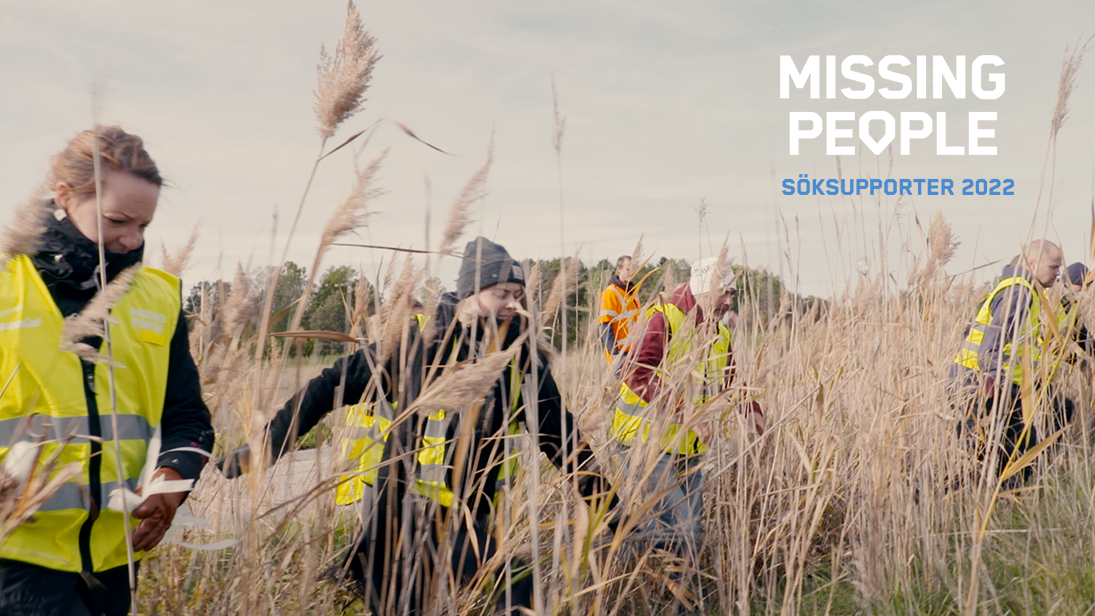Missing People find 8 out of 10 people alive

26,000 disappearances are reported to the police every year. Many are found quickly but some cases are more challenging to solve. Police resources are not always enough. This is when Missing People, a voluntary organisation that the police call their best friend, gets involved. With a register of 60,000 volunteer searchers and 350 specially trained people, Missing People contributes to 80 per cent of those sought being found alive. An essential community effort, which this year is supported by Hogia’s Christmas gift. This money will fund training and the purchase of search equipment.
“Missing People has been around for almost 10 years. We’re well known today. Everyone appreciates our work and many are willing to take part in search efforts. The challenge is to make ends meet financially for our daily operations. We don’t receive any government support and live off memberships, gifts and sponsors only. We’re extremely grateful for all the gifts that in full go to day-to-day operations. It saves lives”, says Claes Salomonsson, press officer and member of the organisation‘s board of directors.
Most of those reported missing are young people between the age of 11 and 20. It is often mental illness that is behind the disappearance, something that has increased during the pandemic. Many people have also ended up in a financial crisis due to unemployment. A search can be initiated 24/7 by calling the emergency number to Missing People. The first thing to do is to get a go-ahead from at least two relatives, as well as the police, before launching a search operation.
“We work very well with the police and do nothing without their approval. Most search efforts start with us posting a missing person announcement on Facebook. This is a very important channel, a search announcement reaches several hundred thousand people. Many cases are solved that way”, says Claes Salomonsson.

” We’re extremely grateful for all the gifts that in full go to day-to-day operations. It saves lives”,
says Claes Salomonsson, press officer and member of the organisation‘s board of directors.
The organisation employs 350 trained volunteers to conduct searches. Relatives and acquaintances are contacted to try to determine the circumstances of the disappearance. If this does not give anything, an organised search may be necessary. There is a national register of 60,000 searchers who can be contacted with a request to take part. Eight out of ten searches end happily with the person being found alive.
“We’re not just a search organisation”, Claes Salomonsson points out. “A large part of our time is spent supporting the relatives, something that the police don’t have time for. We never give up the search, even though it‘s been a long time since the disappearance occurred. We care about the relatives, we want them to have closure.”
